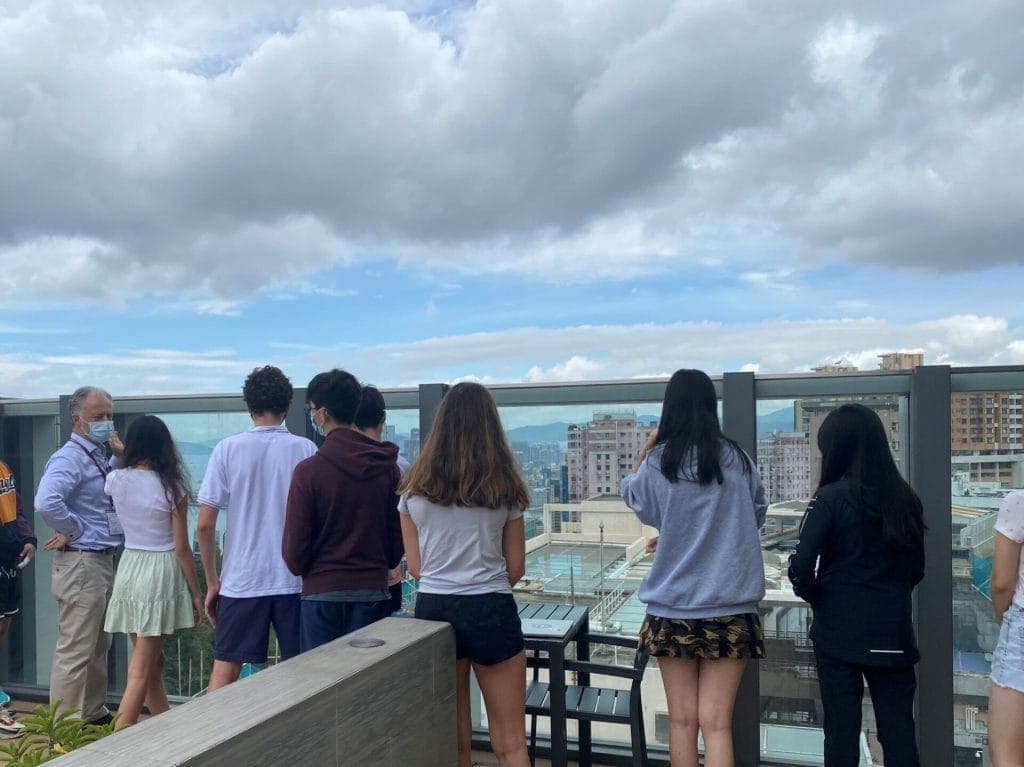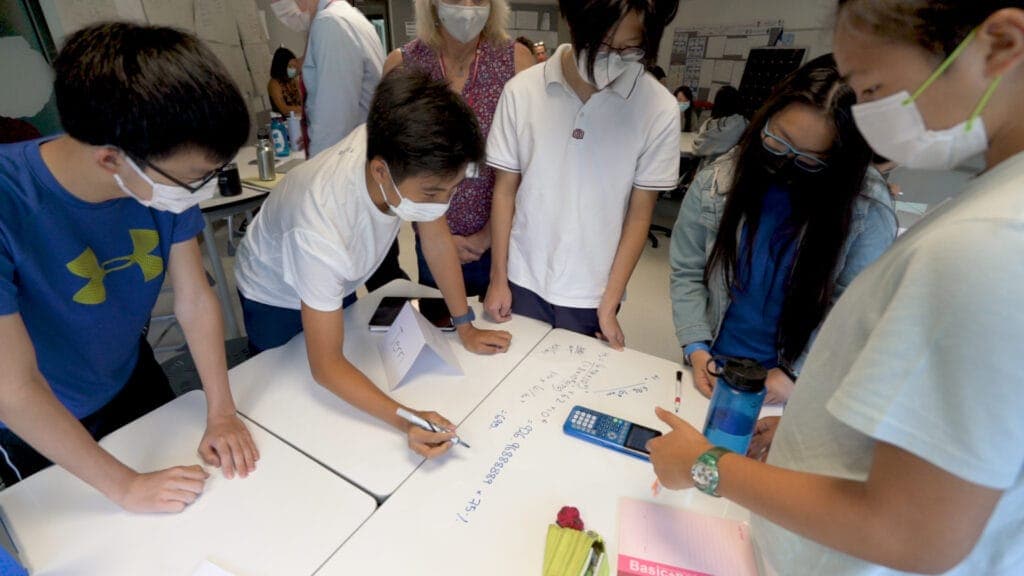
In May 2021, Metanoia taught a four-day solar energy course to 25 Year 10 and 11 students from Chinese International School. Designed around state-of-the-art experiential learning and project-based learning approaches, students worked together in groups of five and were tasked with creating a proposal for installing solar panels on their selected area of the school roof.
Over the course of three days, students received an introduction to: solar energy production, solar design principles, solar technology, solar rooftop site assessments, the economics and financial modelling of a solar project, key structural considerations (i.e., wind and roof load, government regulations) and other renewable energy technologies. Individual and group exercises were placed throughout the lectures to give students the opportunity to apply their newly acquired knowledge to a particular problem or case study before using it in their solar proposal.
On the third day, students had an opportunity to visit the Canadian International School’s rooftop solar installation. The Canadian International School staff who gave the students a tour of the facilities were impressed by the students’ technical questions, especially when they realised that the students had only been learning about solar panels and renewable energy for three days. The visit also showed the students to visualise and imagine how many solar panels and how much space they would need if they wanted to use solar energy to help CIS become a zero carbon school.
On the final day, students presented their rooftop solar proposal to the school’s Head of Operations and a representative from the school’s external engineering consultants before listening to school’s rooftop and façade solar installation proposal. The students were excited by what they saw, particularly when they saw how this could reduce the school’s carbon footprint, and asked the engineering consultant intelligent questions about the project’s specifications, feasibility and timeline based on what they had learned over the week, showcasing their improved eco-literacy.
Watch the short video above to learn more about what was covered and hear what the participating students and the school’s teacher supervisors thought of the programme!
